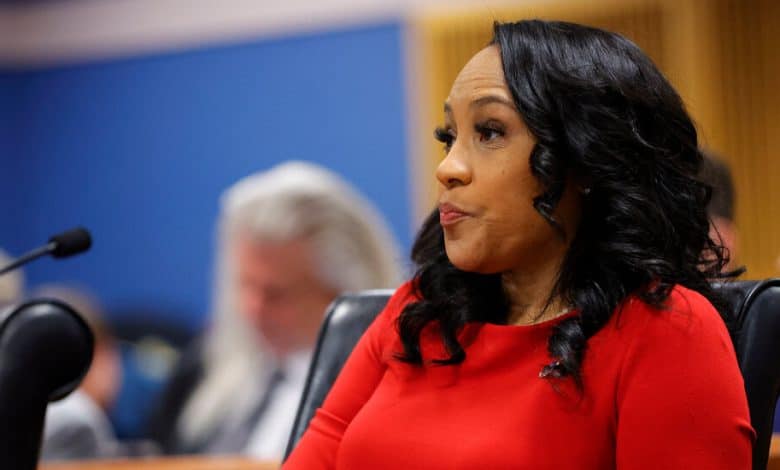Trump Seeks to Appeal Ruling Allowing Prosecutor to Keep Georgia Case

Lawyers for Donald J. Trump and seven of his co-defendants in Georgia told a judge on Monday that they want to appeal his ruling allowing Fani T. Willis to continue prosecuting the election interference case against them.
Because the defendants want to pursue an appeal now, ahead of any trial, Georgia law requires them to get permission from the presiding judge, Scott McAfee of Fulton Superior Court. Even if Judge McAfee allows an appeal to go forward, the Georgia Court of Appeals would have to agree to take the case.
The judge’s ruling last Friday followed weeks of public hearings delving into a romantic relationship between Ms. Willis, the Fulton County district attorney, and Nathan J. Wade, the lawyer she hired to run the Trump case. The defendants had argued that the relationship created an untenable conflict of interest for Ms. Willis.
Judge McAfee disagreed, but found that it had raised “a significant appearance of impropriety” that could be addressed by Mr. Wade withdrawing from the case.
In their filing on Monday, the defendants said that Mr. Wade’s resignation was “insufficient to cure the appearance of impropriety the court has determined exists.” If an appeal is not allowed now, they wrote, any eventual convictions could be subject to retrial if the judge’s decision is overturned later.
“The court’s order is ripe for pretrial appellate review,” Steven H. Sadow, Mr. Trump’s lead lawyer in Georgia, said in a statement.
Ms. Willis’s office had no immediate comment. Neither she nor Mr. Wade have spoken publicly since the ruling, beyond releasing his resignation letter and her response to it. This weekend, the NBC show “Meet the Press” announced that Mr. Wade had agreed to come on the Sunday morning program for an interview. But hours later, it said that Mr. Wade had backed out.
The defendants’ motion on Monday also noted a speech that Ms. Willis gave at a church in Atlanta on Jan. 14, in which she suggested that criticism of her and Mr. Wade was prompted by racism. Mr. Sadow had argued that the speech itself was grounds for disqualifying Ms. Willis.
Judge McAfee, in his ruling last Friday, said that the speech was “legally improper,” but also that there was not enough legal precedent in Georgia to guide him on whether he should disqualify Ms. Willis for it.
In seeking the judge’s permission to pursue an appeal, the defendants argued that this lack of precedent was another reason for the appellate court to weigh in.
Mr. Trump and 14 others are charged with racketeering and a number of other crimes related to accusations that they conspired to overturn the former president’s 2020 election loss in the state. Four other defendants have already pleaded guilty.
Shortly after the indictments last summer, Ms. Willis asked for a trial to start this August. But the odds are low that it will happen that soon.